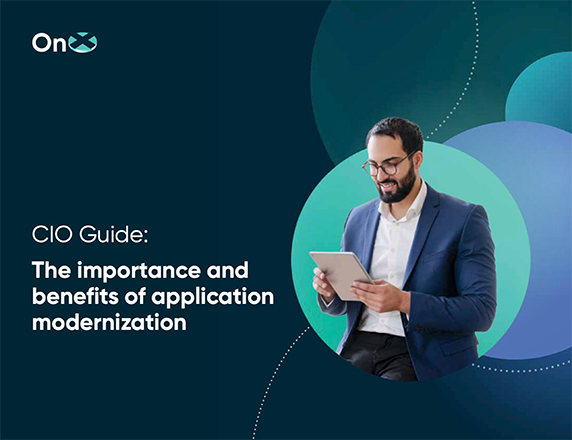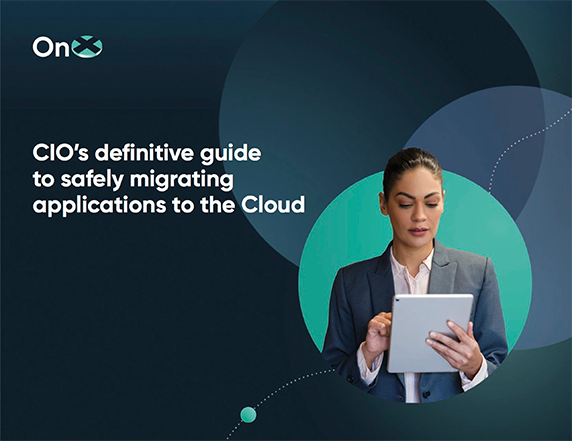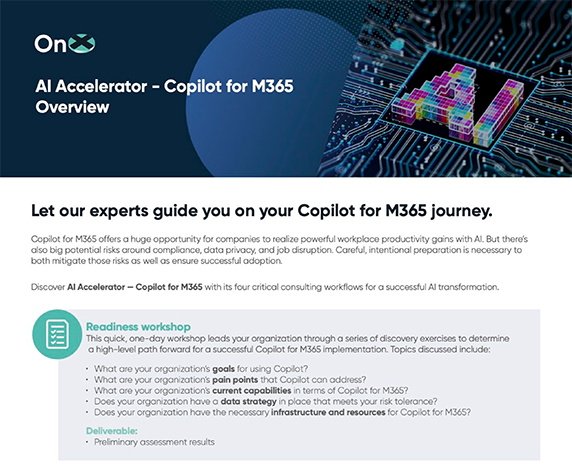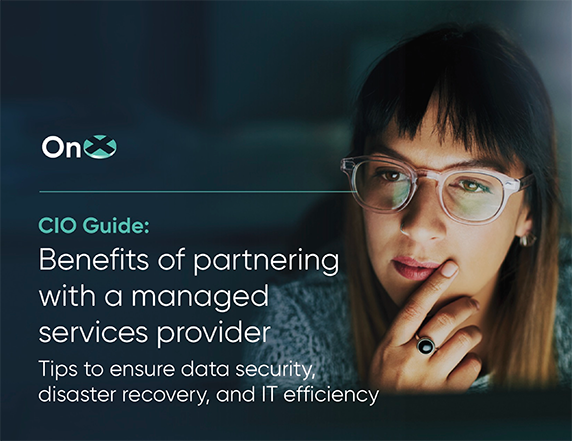
Finding the right managed cloud provider for your business can be a daunting process and one that you want to get right the first time. By necessity, it has to be because you’re talking about handing core IT workloads over to a third party who will take on the day-to-day firefighting which can free your IT people to strengthen your business.
For starters, you have to make sure your provider has the technical acumen and industry experience to meet the precise needs of your business and can bring a level of flexibility and responsiveness so that meet your specific requirements. You also need to ensure your provider has the human resources, skill sets, and certifications to deliver seamless and outstanding customer service.
OnX has decades of experience designing, building, and managing cloud-enabled data centers in Canada and North America. That gives us a decided edge in the managed-cloud marketplace. We have learned that prospective customers need to ask at least seven crucial questions of potential managed cloud providers:
1. Do you offer multiple cloud platforms and infrastructures?
Amazon, Microsoft, Google, IBM, and many more tech titans provide cloud platforms, each one with distinct advantages depending on the nature of the workload. If you’re already using Microsoft technology across your company, then Azure cloud services might make the most sense. Perhaps Amazon Web Services has a better price structure for your budget. If your company has gone through a series of acquisitions, you might need multiple cloud platforms or a hybrid solution.
Your provider should be able to manage all three cloud infrastructures:
- Public: Complete remote hyperscale cloud hosting with a third party like Amazon or Azure.
- Private: Cloud technologies like containerization and virtualization deployed in the provider’s private cloud or your on-site data center.
- Hybrid: A blend of private and public cloud tools in a customized environment to meet your workload and business needs.
At OnX, we’re fortunate to have the people, skills, and experience required to design, configure, and manage cloud environments that cater to our clients’ specific marketplace needs.
2. Which industry certifications do you have?
Most managed cloud providers have broad certifications for skills like networking plus company-specific certifications for AWS, Azure, and so on. But what about the certifications and experience for the industry you work in? That can be a trickier business for managed cloud providers because there are thousands of industry certifications and a plethora of compliance and regulatory requirements depending on the vertical.
When you’re comparing managed cloud providers, start with a list of all the industry certifications your IT people have earned. Give everybody a questionnaire and make sure they return it. Give this list to all the managed services providers under consideration.
OnX has over 1,500 IT people with nearly 3,000 industry certifications and is partnered with the world’s largest hardware and software providers, which you can leverage to your advantage. Only the elite of managed cloud providers has this diversity of expertise.
3. How deep is your experience in my industry?
Financial firms and healthcare providers face a tangle of compliance concerns. Industrial companies automate sophisticated logistics and supply-chain operations. Online retailers need always-on availability.
Your industry has a unique assortment of customers, suppliers, employees, and management challenges. Your managed cloud provider must be able to serve all these stakeholders while keeping your data secure and your applications available 24x7x365. In theory, you could train a provider to deal with the peculiarities of your industry. In reality, the gaps in their knowledge could translate into a poor experience for your end users or customers.
OnX has worked with more than 2,400 clients across every major industry. This expertise ensures we can deliver timely cloud management services and avoid the trial-and-error that can slow IT projects.
4. What is your downtime history?
When you migrate mission-critical applications to the cloud, you have to be able to get them back up and running quickly when downtime strikes. If you run your cloud operations in-house, you have built-in accountability for downtime. Moreover, you have a strong motivation to restore IT operations ASAP.
With managed cloud providers, you hand over this accountability to a third party. So, you have to ask your potential provider for their downtime history and make sure you’re comfortable with their approach to handling outages.
At OnX, our experience managing data centers gives us the preparation and know-how we need to hold downtime to a minimum and quickly restore systems and applications through advanced disaster recovery and data protection solutions.
5. Can you scale as my business needs change?
If your business is seasonal, the cloud lets you scale up for busy times like the holidays and scale back down during the post-New Year’s doldrums. If you’re growing quickly, the cloud makes it easy to add computing and storage resources. When mergers happen, you can unify IT operations in the cloud and spin down redundant data centers.
Prospective managed cloud providers should be able to help you navigate these ups and downs. As you compare firms, make sure they have a track record for flexibility and scale.
OnX has worked with organizations of every size, from local businesses to global conglomerates, in every phase of growth—up, down, and sideways. We know how to do scale.
6. What kind of support can we expect?
The cloud provides a central source of applications and data that people can access on any Internet-connected device. That makes collaboration a breeze, which in turn streamlines project development.
Before long, your cloud apps become mission-critical. That means you’ll need elite-level support from your managed cloud provider. Make sure your prospective cloud provider has people on staff around the clock who are trained to handle your queries quickly and escalate service requests to the people best equipped to handle them.
OnX’s expert managing and monitoring of cloud environments ensures premium-level technical support.
7. Can you provide references?
Don’t just take the cloud provider’s word for it. Ask for references from current or previous clients, preferably firms in your industry. Ask the references about the highs and the lows. Don’t expect to hear 100 percent praise. Rather, references should reassure you that their managed cloud provider adapted to their needs and solved problems to their satisfaction in a quick manner.
Any managed cloud provider who answers the first six questions to your satisfaction should be glad to help you find client staff who can provide in-depth insight into their experience. That’s how we do business at OnX.
OnX Managed Cloud solution
OnX Managed Cloud Services help our clients embrace the benefits of the cloud minus the day-to-day distractions of supervising a cloud environment. Our services include:
- Dedicated Private Hosting
- High Availability Data Center
- Managed Infrastructure for SAP
- Managed iSeries-as-a-Service
- Private and Multi-Tenant Managed Cloud
When you tap our cloud experience, your IT people can stick to what matters most—using technology to make your business more profitable and push customer service to the next level.
Talk to us today about putting Managed Cloud Services to work for you.
















